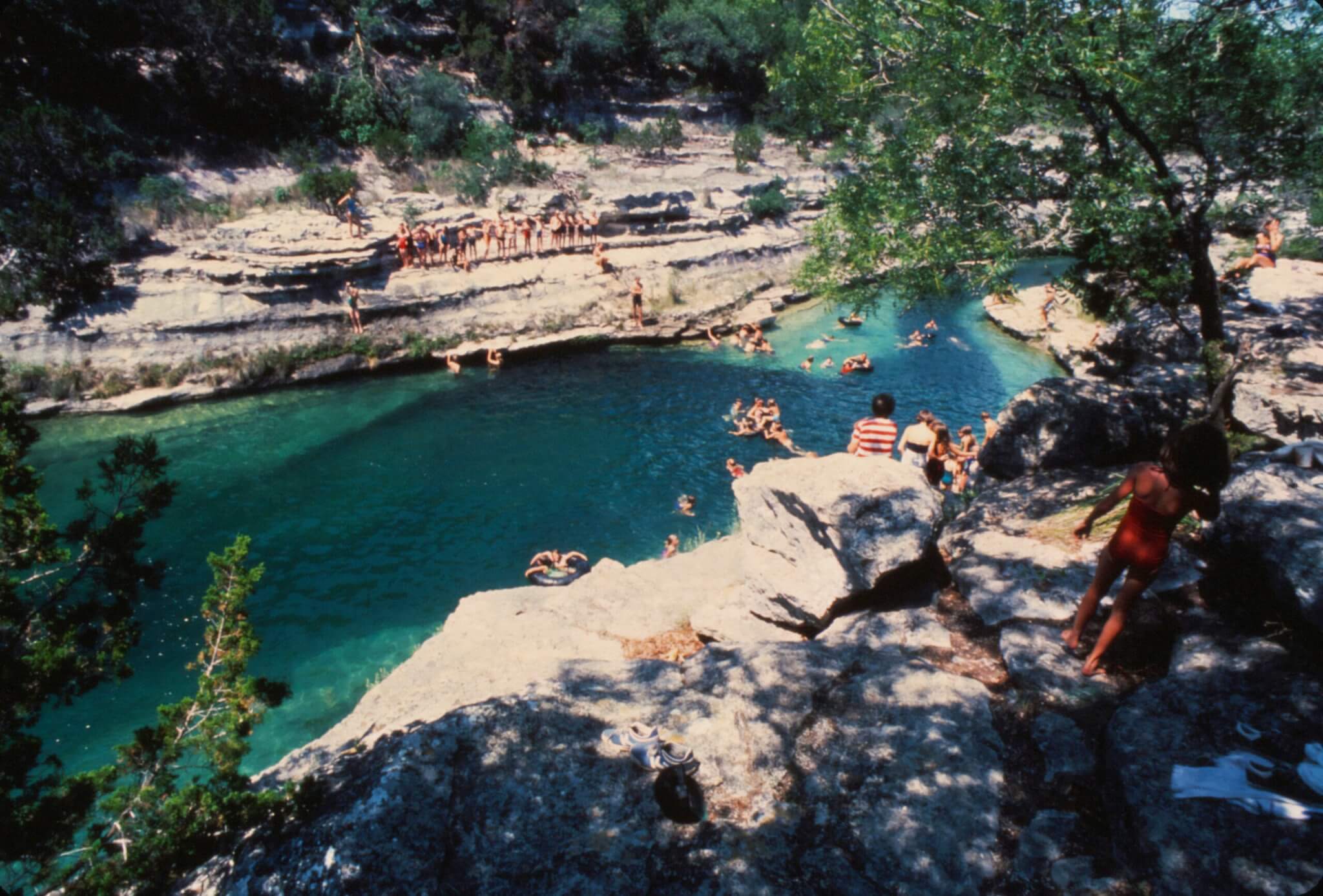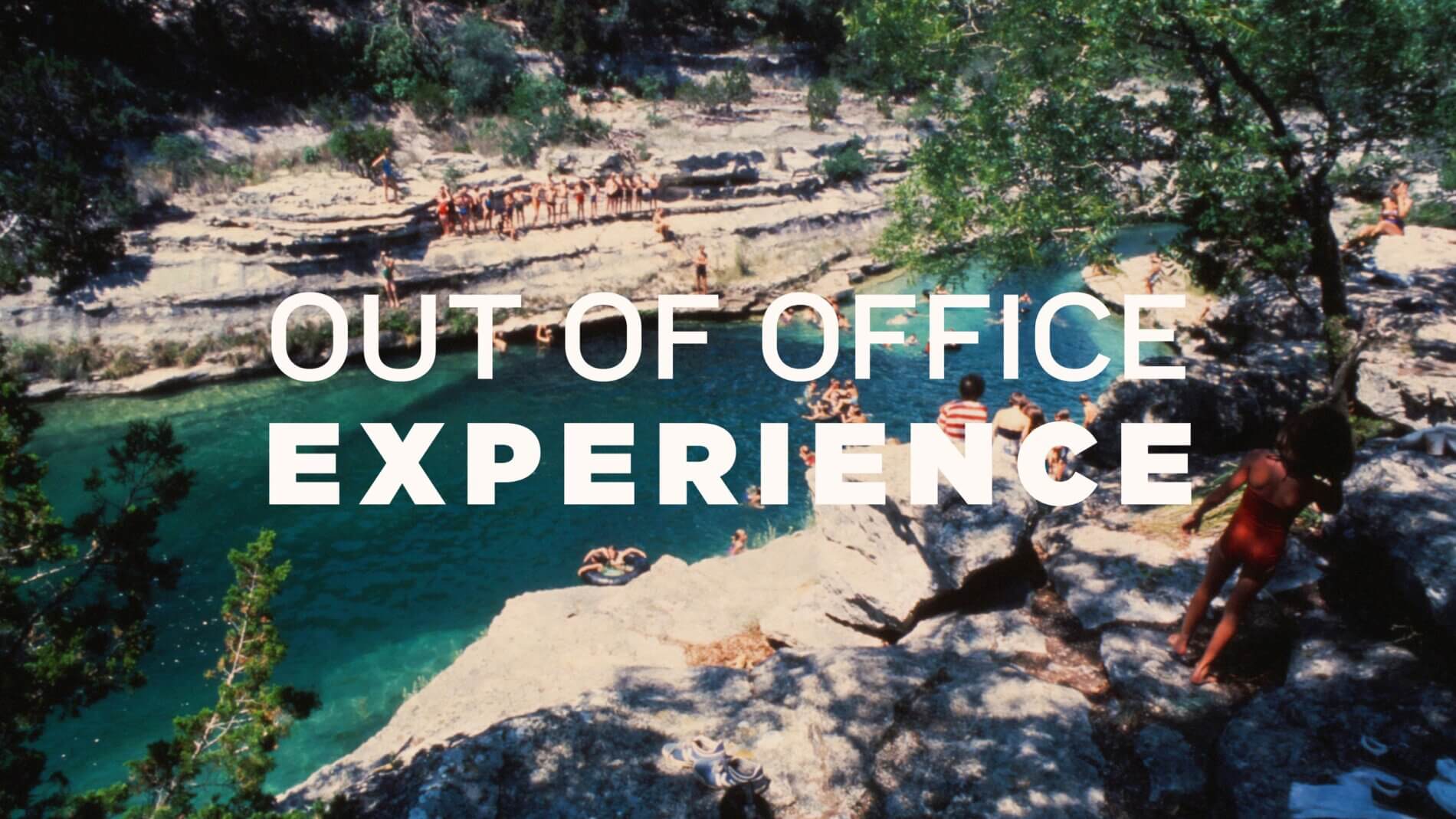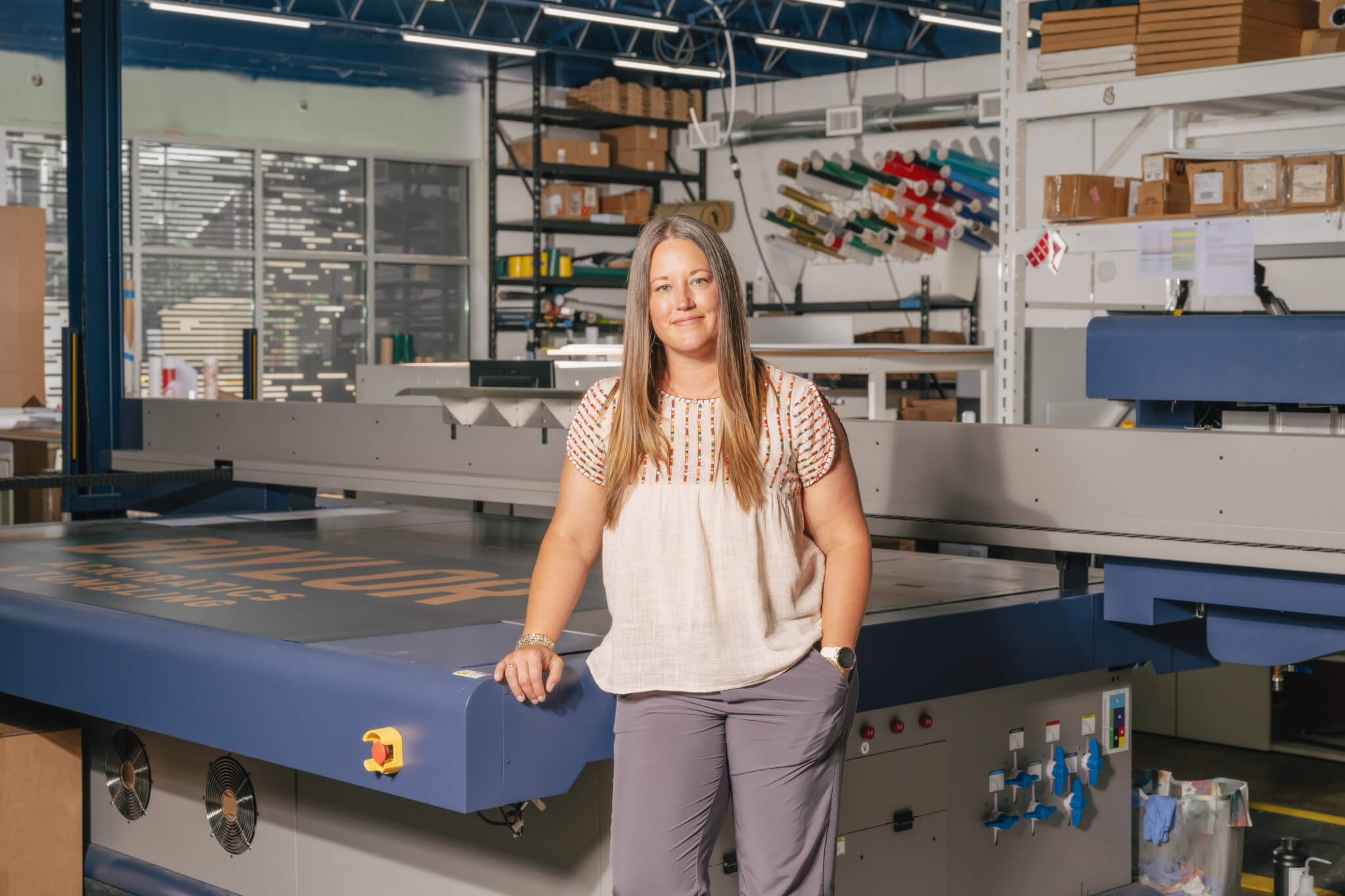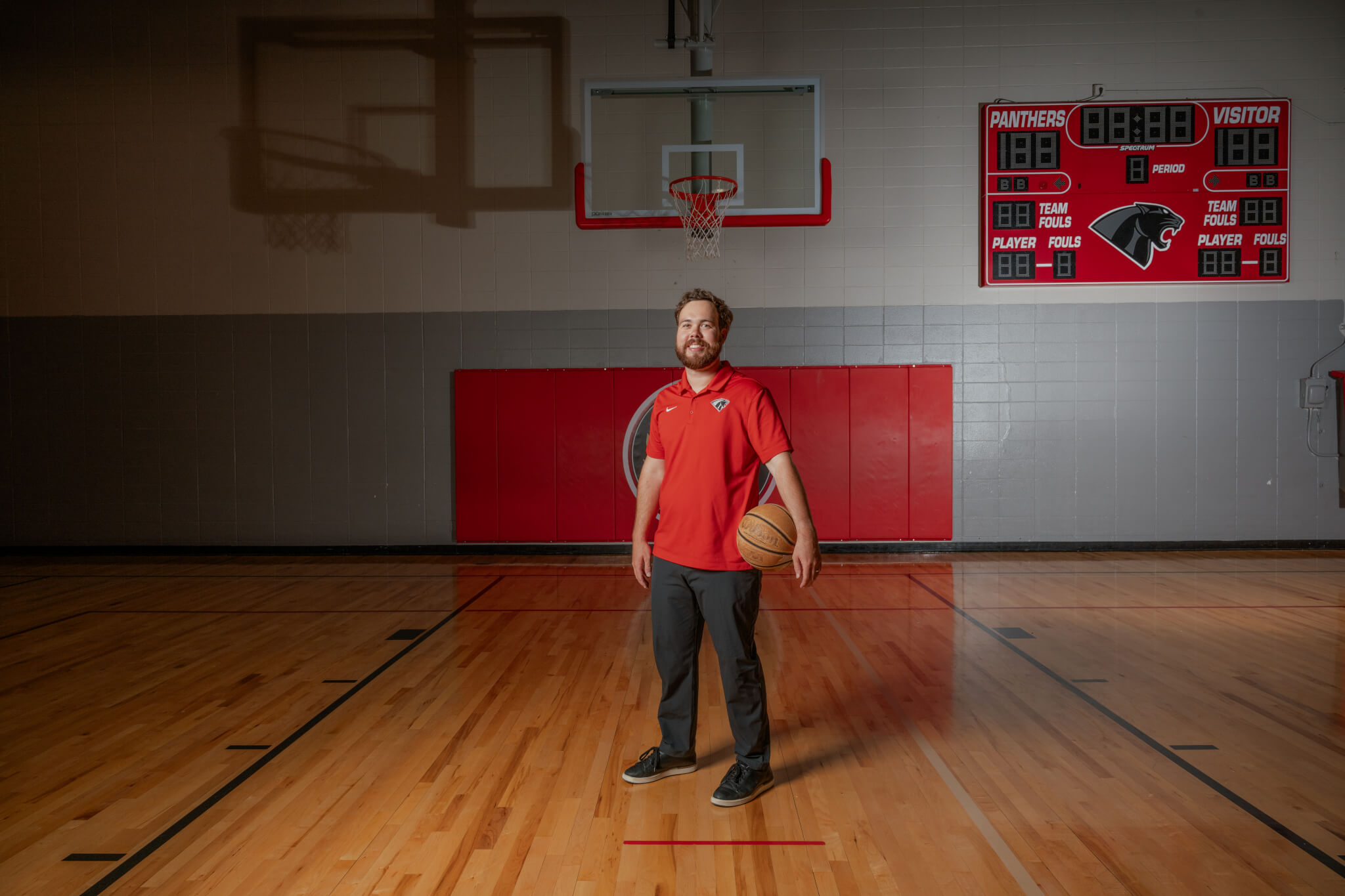

WORDS BY BETH AVILA | PHOTOS BY ANDREA MENDOZA
Three past LLYC counselors—a scientist, a graphic designer,and a teacher—share what they are now.
Camp in the Canyon is worship at Roundup and late night games. It’s memorable cabin conversations (with snacks, of course) and jumping into the Frio. The LLYC experience is unforgettable, and that’s in huge part to the many college students turned camp counselors for the summer.
College students have plenty of options to consider when May rolls around every year: corporate internships, summer classes, even seasonal jobs— positions that seem like they’d fit nicely on a future resume. So, it begs the question: How can a position at camp provide leadership training or growth opportunities?
We went searching for LLYC counselor alumni to find the answer. Our search took us all the way from a design and marketing company to a middle school to a medical research center.

We caught up with LLYC alum Genevieve Peel over in Waco, Texas. Peel has a decade-long history with the Canyon, with two of those years spent as a camp counselor. She went on to use her talents to serve LLYC long after as a key employee of Hole in the Roof–a printing, apparel, and marketing company. Hole in the Roof has been collaborating with LLYC for many years on summer merchandise.
“We got to see the themes of each session and help develop that visually for campers to take home that special thing to wear or use throughout the year,” said Peel. “People call them marketing pieces, but really those are visual reminders of those connections you made at camp. It was cool to help develop those products.”
Peel continued her work with Hole in the Roof for 18 years before leaving in 2021 for a new creative role alongside her husband at their company, Sticker Universe.
“It’s no surprise I ended up in creative roles. LLYC really nurtured that side with having a theme and learning to carry that theme throughout all the summer sessions,” Peel said. “All the details from meals, to dances, to programming and characters, we were able to creatively weave the theme into every aspect of camp.”
Peel attributes her time working at camp with helping prepare her for the creative roles she has taken on outside of the Canyon. “Later in my career, I was helping companies reiterate their organizational values and vision through their branding, their logo, and their team apparel,” said Peel. “All those pieces come together through healthy collaboration.”
“I spent all those years in apparel and promotions realizing that it’s all about relationships and networking,” she continued. “I stayed in touch with people from camp over the years, especially working alongside LLYC with Hole in the Roof. We even ended up hiring LLYC alum to help expand business in the College Station area. That was so fun.”

Travis Stanford’s own camp connections have spilled over into his career at Austin’s Hyde Park Middle School. Stanford was with LLYC for three summers, where he worked with a fellow camp counselor, Parker Howie. Now the two LLYC alum not only find themselves at the same school but in the same department. Howie has been working as the department’s sixth-grade Bible teacher, while Stanford has been working as the eighth-grade Bible teacher and middle school football coach for the last three years.
“It’s so nice to work with someone you trust and that you know has different strengths than you,” said Stanford. “There are things that I know he’s much better at, and I trust that I can go to him and ask, ‘How do we make this better?’… I am the head of the department, but it’s all about learning about the people you work with and then working together to handle every situation in the best way.”
A work environment built on trust, relationship, and learning people’s strengths is what Stanford wanted to create when he took on his new leadership role.
“It’s more than just writing this year’s curriculum,” said Stanford. “It’s being an advocate for the other Bible teachers and making sure they are doing well. Seeing if they need help with lesson planning or figuring out how to handle a situation with a particular student.”
Stanford witnessed this relational style of leadership time and time again at camp. “What kids, and people, really remember is how you cared for them and the way you loved them. I get to do that now as the department head and as a coach.”
Some of Stanford’s fondest memories of camp were the late night activities. “It was always a great time to get as imaginative as possible,” he said. He even recalled inventing a new game for the campers, LLYC’s own Hunger Games.
These days, instead of late night games, Stanford is creating new and imaginative curriculum for his Bible department. “We try to make it entertaining and fun because we don’t want the kids to get burnt out,” he said.
From creating lesson material to leading an entire department, Stanford said he heavily relied on his experience in the Canyon for his current occupation. He even attributes camp with providing a clear vision for the type of career he wanted after college.
“I had no formal teaching experience going in. Without camp, I would not have been prepared for this role at all,” Stanford said. “Summers with LLYC were full of fun activities intertwined with hard, good conversations breaking down the Word of God and the gospel in a way that youth understand it. I got to see a kid really process those conversations and something click for them… I decided I couldn’t leave youth ministry, and I needed to find a way to keep doing it.”

Working with youth at LLYC prepares you for more than a future in youth ministry, according to Lexi Cooper.
Cooper currently works as a researcher with the department of neurosurgery at Dell Medical School in Austin and has applied for medical school with the hope of becoming a doctor.
While her time as a researcher can be more solitary, Cooper knows that social skills matter in any job. Camp taught her how to interact with others. “I was an Angels counselor at camp. That’s the youngest cabin of girls at Singing Hills,” said Cooper. “And I had to learn how to relate both to nervous kids and anxious parents. I think a lot of that experience translates directly over to patient care.”
Cooper explained that to care for her little Angels, she had to become the queen of questions. “Interacting with little kids is such a great lead into patient care because you have to learn how to phrase your questions to get the information you need,” said Cooper.
“For example, the seven- and eight-year-olds don’t know what lactose intolerant means… Instead of asking if they are lactose intolerant, you ask if they can have a sandwich with cheese when they are at home.”
According to Cooper, being a counselor at Singing Hills also taught her how to treat a young kid’s problem like it was her biggest priority. “It’s the most important thing to them in that moment,” Cooper said. “Working with the kids at camp has given me a better eye for when someone (maybe a future patient) needs more compassion in a very scary moment.”
Laugh when they laugh. Cry when they cry — that’s Cooper’s best advice. “Be the counselor that cleans the cabin with them,” she said. “It became clear for me that I want to be the type of leader that’s in the trenches with you.”
At the Foundation, we believe this learned compassion, practiced leadership, and creativity at camp spill out into the world beyond the Canyon — through promotional design, teaching and coaching, patient care, and countless professions.
Around 160 young people leave the Canyon every summer better prepared to enter the professional world after discovering leadership and growth working with LLYC. We are grateful for alumni like Peel, Stanford, and Cooper for the ways they continue to bring transformation to their communities.